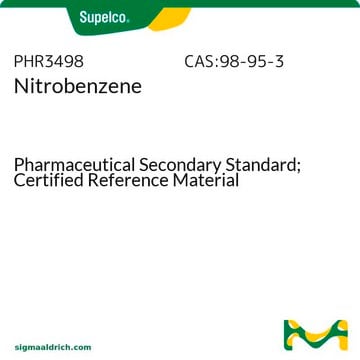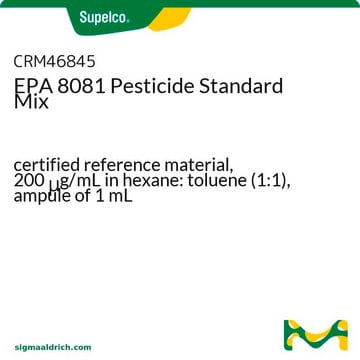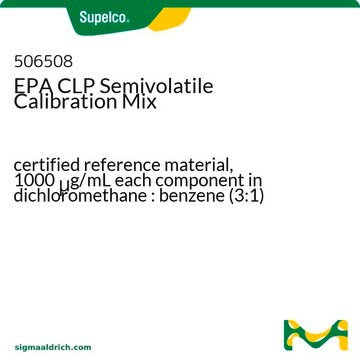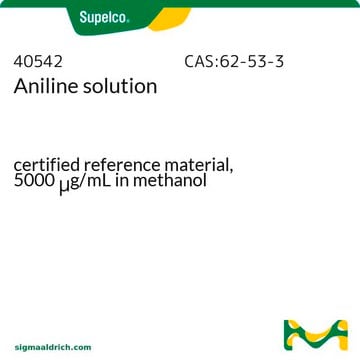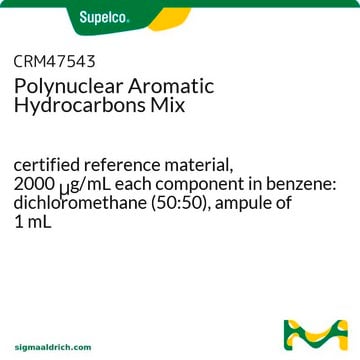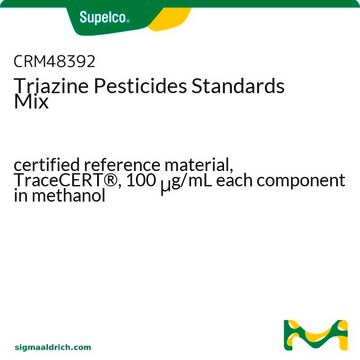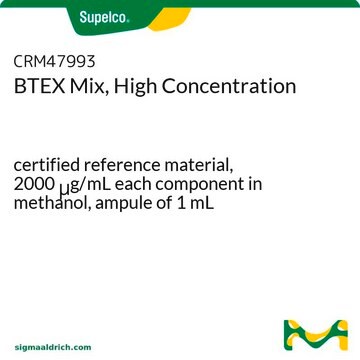40054
Nitrobenzene solution
certified reference material, 5000 μg/mL in methanol
About This Item
Productos recomendados
grado
certified reference material
TraceCERT®
Agency
NIOSH 2005
Línea del producto
TraceCERT®
CofA
current certificate can be downloaded
Características
standard type calibration
envase
ampule of 1 mL
concentración
5000 μg/mL in methanol
técnicas
HPLC: suitable
gas chromatography (GC): suitable
aplicaciones
environmental
formato
single component solution
temp. de almacenamiento
2-8°C
InChI
1S/C6H5NO2/c8-7(9)6-4-2-1-3-5-6/h1-5H
Clave InChI
LQNUZADURLCDLV-UHFFFAOYSA-N
¿Está buscando productos similares? Visita Guía de comparación de productos
Aplicación
Otras notas
Información legal
Palabra de señalización
Danger
Frases de peligro
Consejos de prudencia
Clasificaciones de peligro
Acute Tox. 3 Dermal - Acute Tox. 3 Inhalation - Acute Tox. 3 Oral - Flam. Liq. 2 - Repr. 1B - STOT SE 1
Órganos de actuación
Eyes,Central nervous system
Código de clase de almacenamiento
3 - Flammable liquids
Clase de riesgo para el agua (WGK)
WGK 2
Punto de inflamabilidad (°F)
51.8 °F - closed cup
Punto de inflamabilidad (°C)
11 °C - closed cup
Elija entre una de las versiones más recientes:
¿Ya tiene este producto?
Encuentre la documentación para los productos que ha comprado recientemente en la Biblioteca de documentos.
Nuestro equipo de científicos tiene experiencia en todas las áreas de investigación: Ciencias de la vida, Ciencia de los materiales, Síntesis química, Cromatografía, Analítica y muchas otras.
Póngase en contacto con el Servicio técnico
